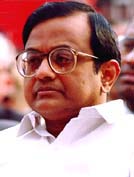Commentary/Mani Shankar Aiyar
Must the country pay the price for political opportunism?

- What accounted for the inordinate delay in Indian Bank not
acting on the revised prudential norms for the classification
of NPAs when most other scheduled banks readily did so? Why was
Indian Bank allowed to get away with such recalcitrance?
- What is the proportion of losses accounted for by provisioning
for bad debts during Gopalakrishnan's eight-year tenure? Were
political personalities benefactors of such provisioning? Who
were they?
- Does the finance minister agree with Gopalakrishnan's assertion
in his interview to Business Line (17/8/96) that he 'never
got involved in bad debts'?
- Did Gopalakrishnan sanction new advances or increase credit
limits within three months of his scheduled date of superannuation/retirement,
in violation of rules?
- To what extent was Indian Bank exposed to the three dangers
against which former finance minister Manmohan Singh had warned:
excessive commercial risks; unsafe banking practices; political
pressures? Did Gopalakrishnan's political connections assist him
in securing licence to do what he wanted regardless of norms and
paralyse the monitoring apparatus of the board of directors of
the RBI? If so, what was the source of this political clout and
how was it exercised?
- Is the CBI being restricted to probing only the international
ramifications of the Indian Bank scandal? Is the CBI being excluded
from investigating the bank's domestic transactions? If so, why?
- Why, despite ample evidence turned up in its inspection reports,
did the RBI not take action against the Indian Bank management? Was
the RBI subjected to political pressure from government?
- Did the finance ministry recommend extensions for Gopalakrishnan?
If not, what were the grounds for the finance ministry's reluctance
to grant extensions? What were the grounds on which extensions
to him were eventually granted?
Unfortunately, most of the JPC members then in the Opposition are
now in cohorts with the present government, including vociferous
voices like Gurudas Dasgupta. That is why they are so subdued
on this issue now where they were only too ready to disrupt Parliament
for two years running on the same genre of questions earlier.
Must the country pay the price for such political opportunism?
Happily, the present finance minister will probably no longer
be in office when Parliament convenes in the New Year. The debate
could then be continued in the Lok Sabha in the presence of his
successor!
|





